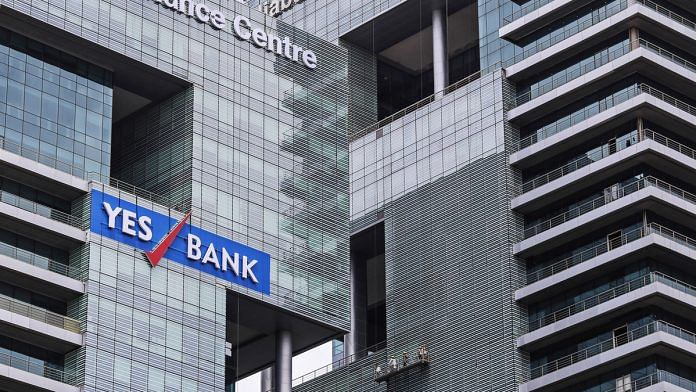New Delhi: The Supreme Court Tuesday took strong exception to a notice issued by the Uttar Pradesh Police that sought to restrain Yes Bank from transferring shares pledged to it by Dish TV and also prohibiting it from exercising its voting rights at the latter’s annual general meeting (AGM).
A bench led by Justice D.Y. Chandrachud stayed the operation of the police notice issued under Section 102 of the Criminal Procedure Code (CrPC) that allows police to seize any stolen property.
It called the police action “dangerous” and “short-circuiting of judicial process”, saying use of criminal process in matters of civil nature “cannot be allowed”.
According to the bench, it was inappropriate for Gautam Buddha Nagar Police to have sent such a notice to the bank, which was beyond their jurisdiction, principally because it sought to prohibit a business transaction.
“We cannot permit police officers sitting in Gautam Buddha Nagar to do this kind of an exercise — prevent voting rights on shares, restricting transferring of shares. The police officer has done something which even the Company Law Tribunal has not done. What kind of state of affairs is this? We cannot allow this in the country,” the bench said.
The bench further observed: “We do not want to give this kind of power to the police. They will start interfering in other public limited companies. This is short-circuiting the judicial process by getting orders from police officers.”
The court was hearing an appeal filed by Yes Bank Limited against an Allahabad High Court order that dismissed its plea on the ground that the bank had an alternative remedy to challenge the notice under the CrPC. The bank, however, had directly invoked the HC’s jurisdiction under Article 226 for enforcement of its fundamental right.
Also read: Yes Bank is a zombie, not a model for bailing out more troubled banks
What did Yes Bank say
In its appeal, Yes Bank claimed a loan of Rs 5,720 crore was disbursed to the Essel Group and its sister concerns between 2016 and 2018. A pledge of 44.53 crore shares was invoked, which was duly informed to the BSE, NSE and RBI between May and July 2020.
Yes Bank alleged that there was a move to prevent invocation of the shares through civil proceedings but the same was withdrawn. However, a complaint was filed by Essel Group Chairman Subhash Chandra in 2020, alleging that the borrowers were induced to take the loan, resulting in the registration of an FIR under sections 420, 467,468, 409, 120B and 34 of the Indian Penal Code (IPC).
These sections relate to cheating, forgery, forgery for the purpose of cheating, breach of trust and criminal conspiracy.
The AGM in which Yes Bank was to participate was to take place on 30 November. It was later deferred.
The 102 CrPc notice was issued on 5 November in the backdrop of the AGM meeting, directing Yes Bank not to transfer the 44.53 crore shares or exercise rights in respect of the shares till the completion of the investigation in the FIR.
‘Misuse of criminal process’
Yes Bank lawyer, senior advocate Abhishek Manu Singhvi, argued that the only purpose of the impugned notice was to freeze voting rights in view of the impending AGM.
“Can 102 in any circumstances apply, looking at the operative words of 102? The shares which I have got as a pledge of a lender or Rs 5,700 crore loans are alleged to be stolen or suspected to be stolen. It is acknowledged on the books and the police says you are directed not to transfer,” he contended.
Singhvi further criticised the HC order that dismissed the bank’s petition filed under Article 226 on the ground that the constitutional provision was not the appropriate remedy.
Senior advocate Kapil Sibal, however, tried to justify the notice and agreed with the HC’s reason to dismiss Yes Bank’s petition. He told the court the bank had proper legal options to avail under the CrPc.
However, the bench in its order Tuesday described the notice as “beyond jurisdiction” and “misuse of criminal process” to restrain Yes Bank from exercising its rights under the pledged shares.
It said: “Prima facie, at this stage we are of the view that it would be necessary to protect the interest of the petitioner in respect of the pledged shares, the pledge having been admittedly invoked. Hence, we issue notice and direct that pending further orders, there shall be a stay of the operation of the impugned notices.”
“This we will not allow,” the bench remarked orally, commenting that to catch hold of a police officer and restrain a share-holder from the company from exercising voting rights and transferring shares will be the easiest thing to do.
(Edited by Neha Mahajan)
Also read: ‘Won’t wait any longer’ — SC sets January date for Mallya sentencing in 2017 contempt conviction



